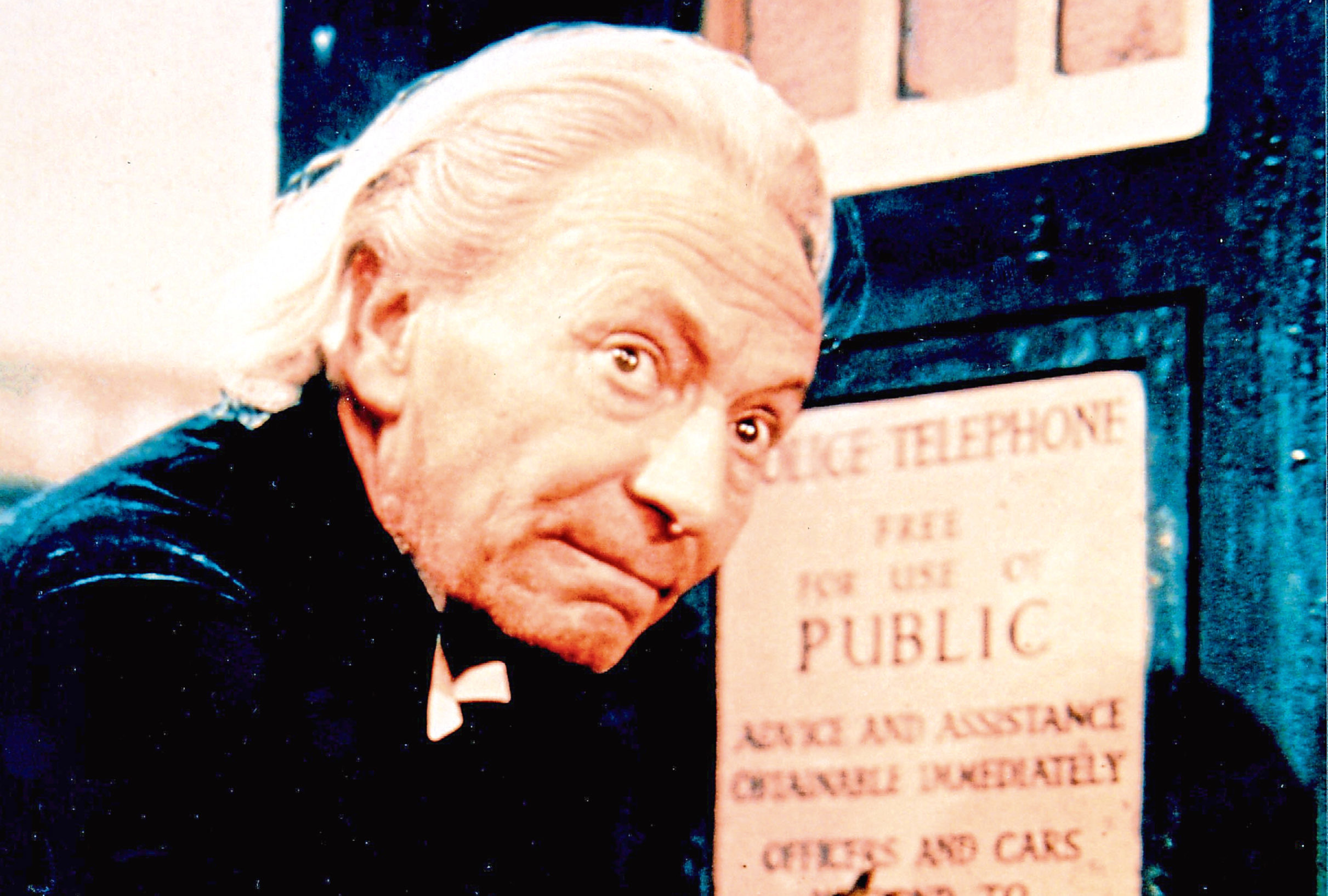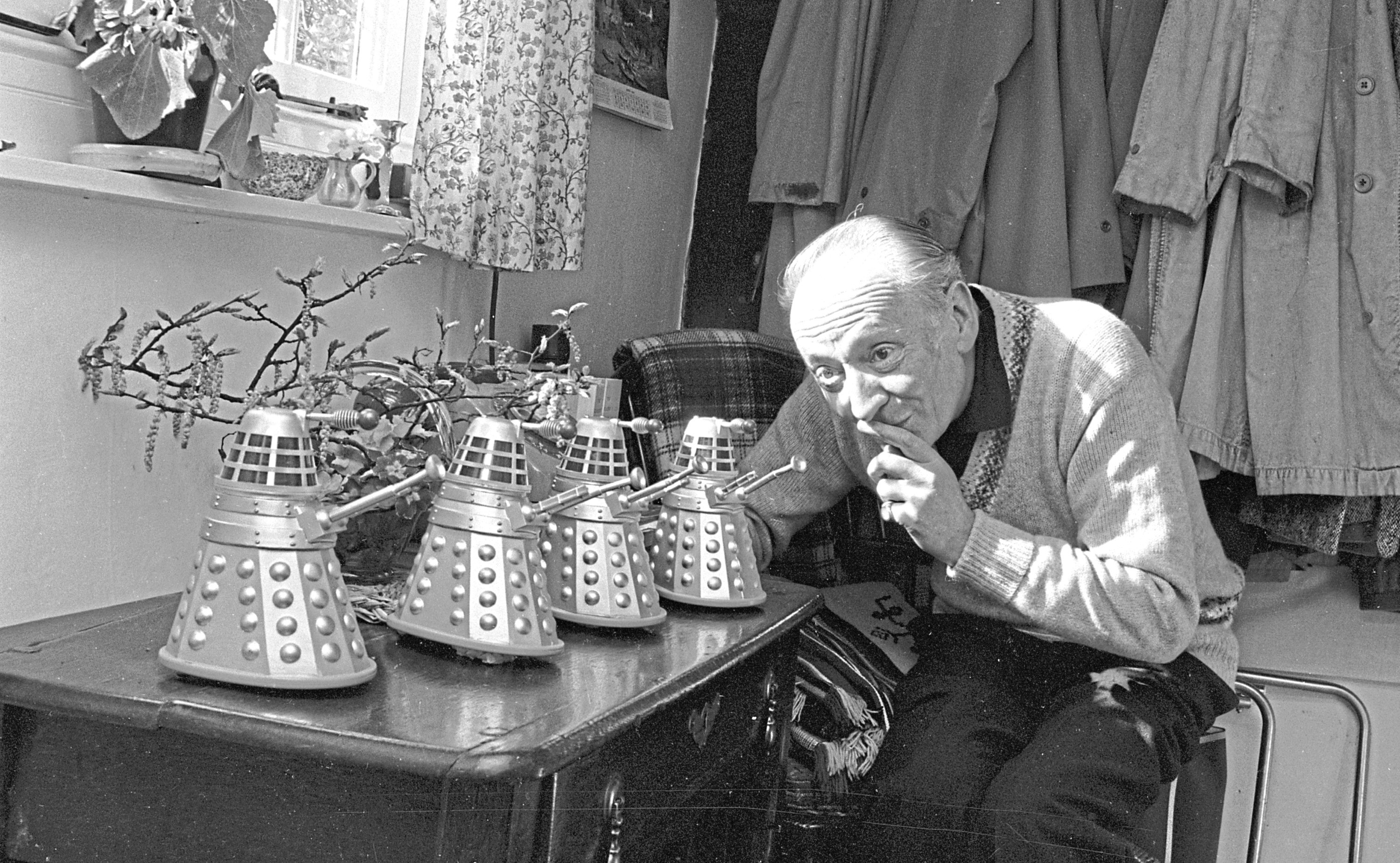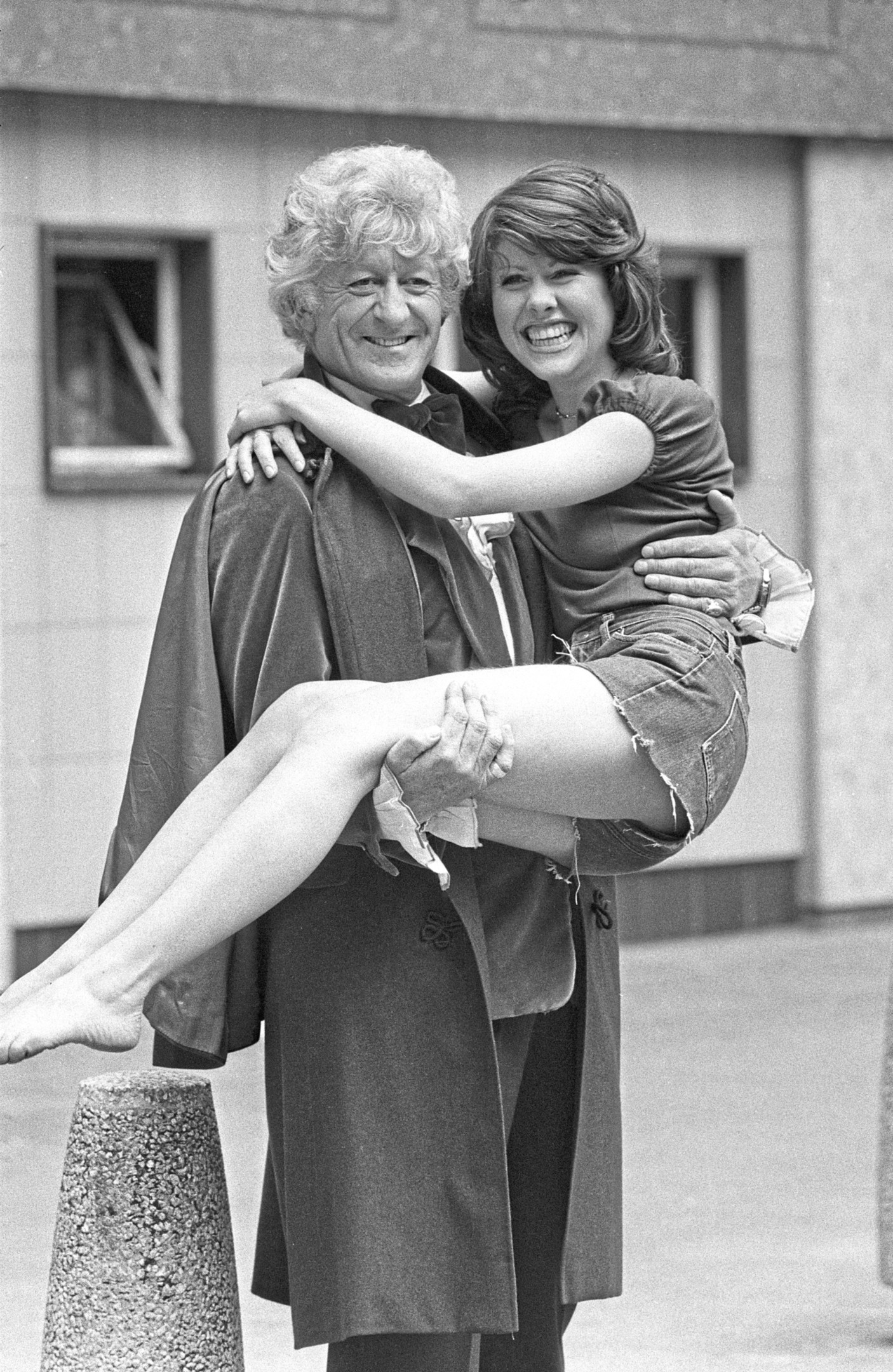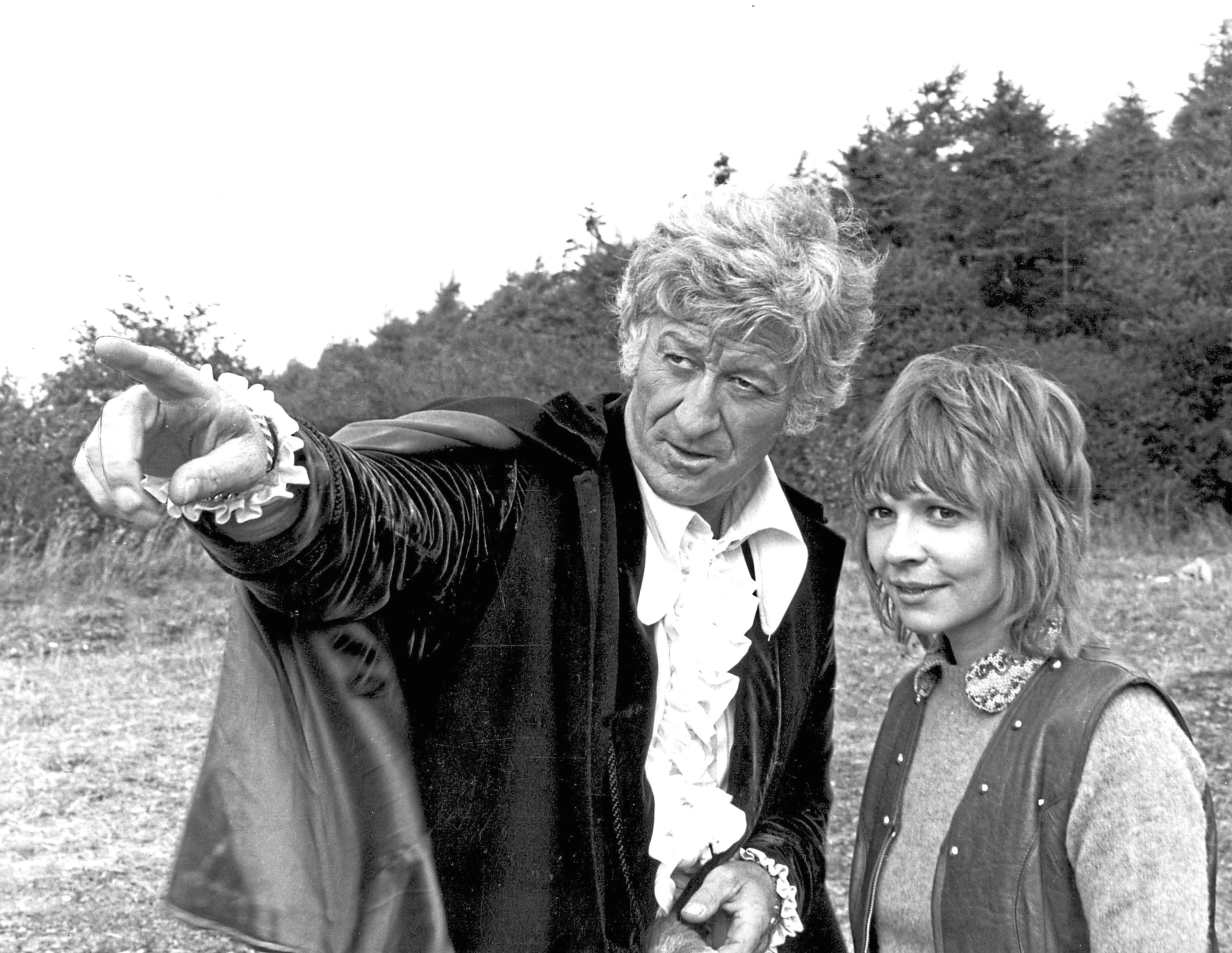
JODIE WHITTAKER was shocked at the level of interest generated by her casting as Doctor Who.
That’s despite the fact she’s the first woman to play the lead character in the 55-year history of the world’s longest-running sci-fi show.
But the fans’ adulation has been there from day one.
All you have to do is read the words of William Hartnell, the first Doctor who introduced us to the Tardis back in November, 1963.
“I couldn’t go out into the street without a bunch of children following me, like the Pied Piper,” said Hartnell.
“We did Doctor Who for 48 weeks a year but I loved it. People used to take it terribly seriously. I’d get letters from boys swotting for exams, asking me complicated questions about time ratios and the Tardis. I couldn’t help them.
“A lot of the scriptwriters used to make the Doctor use expressions like ‘centrifugal force’ but I refused. If it gets too technical, the children don’t understand and they lose interest.
“I saw the Doctor as a kind of lama, one of those long-lived old boys out in Tibet who might be anything up to 800 years old but only look 75.”
Hartnell played the Doctor as an impossibly elderly man, with long white hair and a habit of forgetting people’s names.
But in reality the actor was just 55 when he was cast, with his own short greying hair covered by a long, white wig.
In fact, when Peter Capaldi began his stint as the 12th Doctor, he was a little older than Hartnell was when he first started on the show.
Hartnell’s widow Heather recalled: “Terry, our son-in-law and Bill’s agent, phoned me up from London saying that he was coming down to the cottage because he had this most incredible script that he wanted Bill to read and tell him about.
“He said: ‘It’s an old man with long, white hair, an old professor who’s a bit round the bend.’ Well, I said. ‘Bill will love it.’
“Bill took the script and sat in absolute silence, reading it through from beginning to end, and eventually said: ‘My goodness, I want this part.’ He saw immediately that there was something so different about the whole idea.
“The only thing that I was sorry about when he started was that they made him a rather grumpy old man. Bill would have liked to put more comedy into it, and to some extent tried with his coughs and splutterings but even so, he loved it from the very beginning.”
Hartnell was already suffering from the early stages of arteriosclerosis which caused problems with his movement and ability to remember lines, and meant he had to give up the role in 1966.
When his Doctor returned as a one-off guest-star in 1972’s The Three Doctors, his health had deteriorated further and he died less than three years later.
Heather said: “I was so pleased that more or less the last thing that he was able to do should be something that has lasted and lasted throughout the years.
“He put a lot of himself into it, because Bill has always been the sort of person that didn’t suffer fools gladly and that came out very strongly in the character of the Doctor.
“The first Dalek story I remember, there was a bit of trouble over. It was in the script that when the Dalek was incapacitated or exterminated they were to have some oozy blood coming out of the base of the machines and Bill said: ‘No, that’s too nasty for children,’ so they cut it out.
“After that, Bill used to really enjoy the Daleks because they were something for him to hate and he really enjoyed fighting them, and he knew the kids loved the Dalek series.”
When it came time to hand over the keys to the Tardis, Hartnell had a role in appointing his successor.
As Heather explained: “With Patrick Troughton taking over the show, we were delighted because Bill had suggested him for the part and he was number one choice of the names that came up.
“We’d known Pat for years, he’s a darling person, but after a time Bill stopped watching it because it upset him emotionally.
“Even so, he was very pleased with Jon Pertwee’s interpretation. He hardly saw any of Jon Pertwee’s stories but was tickled pink to think that the show had gone on and when he did The Three Doctors he glowed again as if it had taken 10 years off his illness.”
Just like Jodie Whittaker’s zesty take on the Time Lord after Peter Capaldi’s sometimes-prickly Doctor, Troughton was seen as taking a less serious approach than that of his predecessor.
Not that he’d agree, arguing: “But Doctor Who was a serious part. It wasn’t an unserious part at all, gracious me.
“Billy had made him this crotchety old gentleman, he was very serious and I had to be very serious too. But the way I made him serious was to make him a bit of a clown to start with, a sort of offbeat thing, but we started rather wild and we mellowed as the time went on.
“The Doctor was a chance to exercise the mischievous side of my nature which I grabbed with both hands. To begin with, I was thinking of playing him rather serious and tough.
“And, of course, Michael Craze and Anneke Wills, who played my companions Ben and Polly, were responsible for me wearing that absurd Beatles cut. Just before we went on, we got down to make-up and I’d had a lovely wig fitted that made me look just like Tom Baker, actually, or Colin.
“I put it on and they both looked at me and said: ‘You look like Harpo Marx and we’re not going on with you in that wig.’
“I said: ‘Don’t be ridiculous.’ They said: ‘No, sorry, no.’ So they took it off and started doing things, combing it and lifting it and all that, and I ended up like The Beatles, which is totally out of date. Not that that matters to a Time Lord.
“When you’re a character actor, you’re having to make decisions all the time, and that’s a question of gaining confidence in the part you play, and that takes the time, really. Whereas with Doctor Who, the three years of it, you weren’t learning lines, really, you were learning thoughts.
“It had never been done before, the whole concept of a character going on was totally new and nobody knew whether the audience would accept it so one was jumping in at the deep end.
“And although you had carte blanche, you had to have continuity, he had to be otherworldly, he comes from another planet. This was the most important thing.”
This is the dilemma now facing Jodie who was a surprise choice, as was Jon Pertwee as the Third Doctor in 1970.
As the man himself recalled: “I was in The Navy Lark which ran 18 and a half years alongside Leslie Phillips and Ronnie Barker.
“One of them said: ‘Why don’t you put yourself up for Doctor Who?’. I said: ‘Why would they want an eccentric, long-nosed comic to play Doctor Who?’
“But I called my agent who, after a very long pause, said: “ I don’t think it’s a very good idea but I’ll try it’ so he rang up and spoke to the producer of Doctor Who.
“There was an equally long pause and my agent said: ‘I had exactly the same reaction, sorry,’ but the producer said: ‘No, the reason I’m so staggered is that his name’s the second on our shortlist,’ and I had been for two years and I didn’t even know it.
“I think Doctor Who was more or less me. The first one I did, I played for laughs. They gave me the job because they wanted me to play the guitar and sing ballads.
“Pat Troughton played his penny whistle, so they thought I could play ballads but, no, we got rid of all that.”
That said, the late Mr Pertwee summed up Doctor Who’s continuing appeal when he said: “There’s a magic, pure escapism. People are sick of the kitchen sink and they want to escape.”
And there certainly was escapism in the Pertwee era, as he explained: “I wanted to make him into a kind of science-fiction James Bond because I’m an adventuresome twit.
“I like motorbikes and I used to race cars and I race speedboats – I liked incorporating this into the show and my producer mercifully let me. It was a good idea. It was a different approach to it.”


Enjoy the convenience of having The Sunday Post delivered as a digital ePaper straight to your smartphone, tablet or computer.
Subscribe for only £5.49 a month and enjoy all the benefits of the printed paper as a digital replica.
Subscribe


